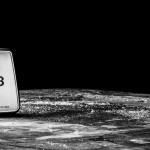Control your work schedule. Shift to increased productivity
The productivity in a company may be measured firstly by observing the methods each employee uses for delivering tasks on a daily basis. Focusing on the employees’ individual approach to assignments creates a useful opportunity to start measuring the productivity in the company and moreover to search for ways to improve it, if necessary. The organizational growth highly depends on each employee’s contribution, therefore it is crucial to train them to develop a rigid and productive work schedule.
The work environment has a great influence on the way employees develop their activity; some people use the same techniques to improve productivity, creating therefore a category of people who act by the same rules, others have their own individual set of methods by which they conduct their daily routine, made for their own individual personality.
Mark Woods, author of Attack your day! Before it attacks you, talks about 12 general tips that every employee can use in order to increase their workday productivity:
- Personalize agendas – clear indications on tasks should be given by supervisors as well as a specification of the desired result of each task. Agendas should be planned by each employee individually, according to their own work capacity and pace, also keeping in mind the received indications and deadlines.
- Delineate and “clump up” small tasks – routine tasks should be broken down into small parts, each of them being dealt with according to their nature and urgency. It is advisable to avoid jumping back and forth to the same activities; instead begin one and continue with the one related to it.
- Monitor agendas – make sure you are on track and do not delay tasks; recovering from these mistakes harms productivity. Mark the task you’ve completed to help you keep track.
- Hand over assignments – delegating tasks is equally time saving and efficient. Seek help from people who possess the resources and time to help you.
- Dodge the email and social media frenzy – using email is vital in an organization, but constantly and unnecessarily checking it both wastes your time and distracts you from a task. Avoid connecting to social networks if you feel it impedes your work, advises Woods.
- A clean desk equals a speedy train of thought – clear the desk, clear your mind. Once you have managed to organize your desk, your capacity to concentrate increases as you no longer get stuck in piles of papers, notes and other stuff that only mean clutter. Having an organized desk also saves time, as you find much more easily things you need.
- Think twice before meetings – organize each meeting clearly and think the need for each employee’s participation in it. Unnecessary attending to meetings only makes people waste precious time.
- Resist going overboard with lending a hand – every work environment is much more productive if workers collaborate and share tasks. However, Mark Woods states the negative part of over-sharing. Helping a colleague is a thing to appreciate, but it should not happen if you already have too much to do. Don’t help if your to-do list allows no additional tasks, there will be other times when you will be free to do it.
- Finish disliked tasks quickly – it is not pleasant and many prefer leaving the hard and disliked tasks at the end. But this is not as efficient as it may seem. It is advisable to start your day with these exact tasks, and later continuing with the ones you find easier and more pleasant to deliver. Moreover, if you leave the unwanted tasks for later, by the time you get to them, you may be too tired to perform them.
- Revitalize at lunch or dinner hour – take advantage of your break time, it is there for you to enjoy. Breaks are just as important as work hours, as they bring medical and psychological advantages. A good, revitalizing break enables you to work better and faster, thus increasing your productivity level.
- Look elsewhere, for a change – do not spend 8 hours straight looking at the same screen, doing the same thing. This is both inefficient and a productivity killer. Try doing things you like, such as short phone calls to friends or family, read something of your interest, chat with a colleague, but try not to interfere with his or her work. Small things do make a difference at a workplace.
- Be constructive with your saved time – if you manage to deliver your tasks sooner than the deadlines and you find yourself with some time to spare, use it to think of possible improvements for you own work techniques or for the department or company as a whole.
References:
Image source:

Tags: Human Resources performance, Mark Woods, Performance Management, Time Management






